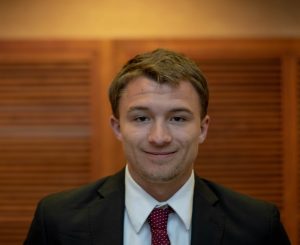Events Calendar
Abstract: Radiation induced lymphopenia (RIL) has recently gained attention due to its correlation with survival in a range of indications, particularly when combining radiotherapy (RT) with immunotherapy. In this talk I will give an overview of some of our efforts in minimizing the negative effects of radiation on the immune system in the following parts:
Part 1: I will discuss our time-dependent computational framework, hematological dose (HEDOS), which estimates dose to circulating blood cells from radiation therapy treatment fields for any treatment site. HEDOS is publicly available (https://github.com/mghro/hedos) and allows for the estimation of patient-specific dose to circulating blood cells based on organ DVHs, thus enabling the study of the impact of different treatment plans, dose rates, and fractionation schemes.
Part 2: I will discuss our expansion of HEDOS to include 3-Dimensional vasculature and variable-speed blood particle flow models for the increased accuracy of computing dose to circulating lymphocytes.
Part 3: I will discuss our most recent efforts to use these dynamic blood circulation models combined with observed lymphocyte depletion in patients to derive the in vivo radiosensitivity of circulating lymphocytes and study the effect of RT delivery parameters and determining their optimal combination for the minimization of immune system toxicity.

About the speaker: Lucas McCullum is a full-time medical physics researcher at Massachusetts General Hospital (MGH) where he contributes to the development of novel tools used to enhance outcome prediction in the field of radiation oncology. His current work at MGH focuses on developing whole-body blood flow simulations to assess radiation dose to circulating blood cells and correlate this with patient outcomes (i.e., lymphopenia) by modifying treatment dose, fractionation, and scheduling. Lucas earned his B.S. in Mechanical Engineering and B.A. in Applied Mathematics from the University of Maryland, Baltimore County (UMBC) before enrolling in a M.S. in Computational and Mathematical Engineering (ICME) with a focus on Imaging Sciences at Stanford University which remains unfinished. Before his time at MGH, Lucas was a software engineer in the Laboratory for Computational Physiology at the Massachusetts Institute of Technology (MIT) Institute for Medical Engineering & Science (IMES) where he focused on being the project manager and lead developer for an interactive web-based physiologic waveform annotator to reduce the number of false alarms in the Intensive Care Unit (ICU). He also contributed to the development of the open-access platform PhysioNet which hosts physiological data and images including the widely used machine learning databases for the ICU (i.e., MIMIC) and chest X-rays (i.e., MIMIC-CXR which includes >350,000 images). Prior to that, he spent two summers as a research software engineer at the Department of Energy’s (DOE) National Renewable Energy Laboratory (NREL) in Boulder, CO developing interactive web-based data visualizations and computational wind simulations (in Fortran, yikes) for large multi-scale data. He also spent time conducting research in MRI image processing for Alzheimer’s Disease at the biotech startup Alkahest in Silicon Valley as well as the bioinformatics startup LuminUltra in Baltimore, MD which now develops the COVID tests for the Canadian water supply. Finally, he conducted research in computational neuroscience at the University of Maryland School of Medicine in Baltimore, MD to detect neuronal pathways of pain using 4D imaging data.
Lucas will begin his Ph.D. this Fall at the University of Texas MD Anderson UT Health Graduate School of Biomedical Sciences in Medical Physics where he will work with Dr. Clifton Fuller with the support of a Graduate Research Assistantship, AAPM/RSNA Doctoral Fellowship, and pending NIH F31-DS.
